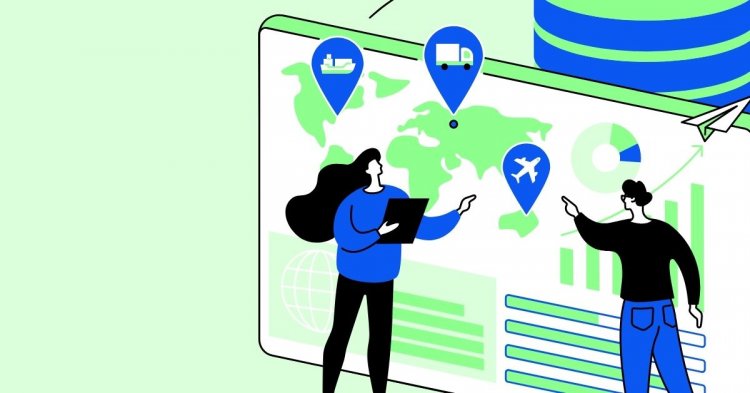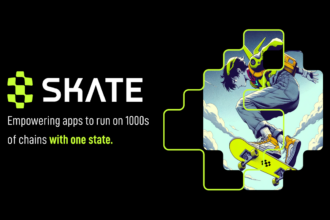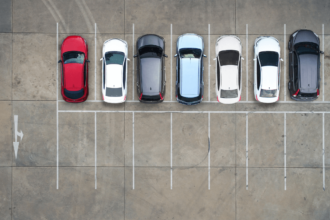Before it reaches you, even something as common as pain- and fever-reducing medicine like Dolo has to travel hundreds, if not thousands, of kilometres.
Stocked in storage units, it is handed out to a carrying and forwarding agent (CFA) who takes it to a super stockist, a stockist, or a sub-stockist who then sends it to a wholesaler. There, it is picked up by a retailer or pharmacy and eventually, sold to a customer.
Considering the cold-storage requirements, most medicines in India have to go through multi-tiered distribution processes before reaching the consumers, which leads to long delays in the supply chain.
This problem was exacerbated during the second wave of the COVID-19 pandemic when the supply chains were stretched thin, which led to a massive shortage of life-saving medicines, forcing many to turn to the black market and scramble to get contacts on Twitter.
“This whole chain depends on where the demand and the supply are coming from. It’s very complicated,” says IIT-Kanpur alumnus and co-founder Vivek Jaiswal tells YourStory.
Due to the fragmented system, medicine shops in Tier-III towns and beyond find themselves at the lower end of the supply chain. These stores often tend to have access to select medicines due to which a patient often has to travel to bigger cities.
These gaps in the supply chain led Vivek, Anurag Savarnya, Shivansh Shrivastava and Amit Kumar to found Saveo in 2019. The business-to-business (B2B) managed marketplace offers pharmacies the required technology solutions to procure medicines easily and quickly.
While pharmacists across cities can avail Saveo’s offerings, its main focus is to reach beyond large cities.
What does Saveo do?
According to Vivek, most drugstores do not have visibility of the stock of medicine due to the lack of data. Pharmacists often tend to check the availability only when the patient enquiries.
Bengaluru-headquartered Saveo aims to solve these problems by listing most of the medicines on its platform, as well as showing the availability of the stock.
The platform enables pharmacists across cities to sign up on the platform, check the status of the stock available, and order the medicines required. These orders are linked to suppliers and dark stores, generating invoices billed to Saveo. The suppliers pack and store the item, from where they are picked up and delivered to the startup’s fulfilment centres.
Saveo has added over 10,000 pharmacies across Karnataka, Andhra Pradesh, Telangana, and Tamil Nadu across more than 120 towns.
Currently, the company has three fulfilment centres in Bengaluru, Hyderabad, and Coimbatore.
This allows the startup to process orders without holding the inventory as it updates the available supply, which is a combination of stock of different suppliers.
The startup works with suppliers on an asset-light model where they hold stock in dark stores while the logistics setup is outsourced to a third party. These suppliers are either stockists or manufacturers, or CFAs. This, not having to hold inventory.
Saveo plans to open the next fulfilment centre in Pune. Viveks adds that the startup can serve up to 200 cities and towns with one fulfilment centre, with the orders claimed to be delivered within 24-30 hours.
The startup is working with more than 90 community leaders to get these medical stores, who help educate the store owners, on its platform. Armed with the data from consumer buying patterns from these stores, the startup is also able to predict the demand in the area which it uses to generate customer insights.
Saveo earns a margin of about 10.5 percent. Since January 2022, it is earning about Rs 12 crore as monthly revenue, growing 11 times year on year. The startup has used the funding capital to expand aggressively and use targeted marketing to onboard pharmacy owners on its platform.
The way ahead
Presently, the company is focused on improving its unit economics.
Viveks claims the startup is making Rs 70 per order.
“Now, the game is to replicate that to a new state,” he says. “Once we replicate the model to a different city and different state at scale, we will take it pan India.”
In comparison to the pharma industry, the fast-moving consumer goods (FMCG) supply chain in India has a lower inventory level – the problem statement Saveo is solving.
A 2019 report by Organisation of Pharmaceutical Producers of India (OPPI) and consulting firm Kearney says, “A comparison of best-in-class pharma in India against best-in-class FMCG firms globally points to an additional difference of 80 days of inventory, reinforcing the clear need for better planning and inventory management.”
This is the challenge the 184-membered Saveo team is trying to take on.
The startup says it has 70 percent coverage in Karnataka, 35 percent in Telangana, and 20 percent in Tamil Nadu.
Saveo last raised $4.5 million in December 2021 in equity and debt. Prior to that, the B2B startup raised $4 million in seed funding co-led by Matrix Partners India and RTP Global, with participation from Incubate Fund and India Quotient.
“Right now we are focusing solely on south India,” Vivek says.
The company is now targeting to reach Rs 25 crore monthly revenue in the next few months.
“By March 2023, we are looking to expand to central and northern India,” he adds.
To add to its product suite, Saveo is also building an enterprise resource planning (ERP) system to help these stores keep a track of their own inventory. The mobile-first system would help pharmacies update their stock by uploading a picture of their bill.
It also plans to raise another round of funding in June 2022.
Saveo competes with the likes of startups like Retailio and Pharmarack.















